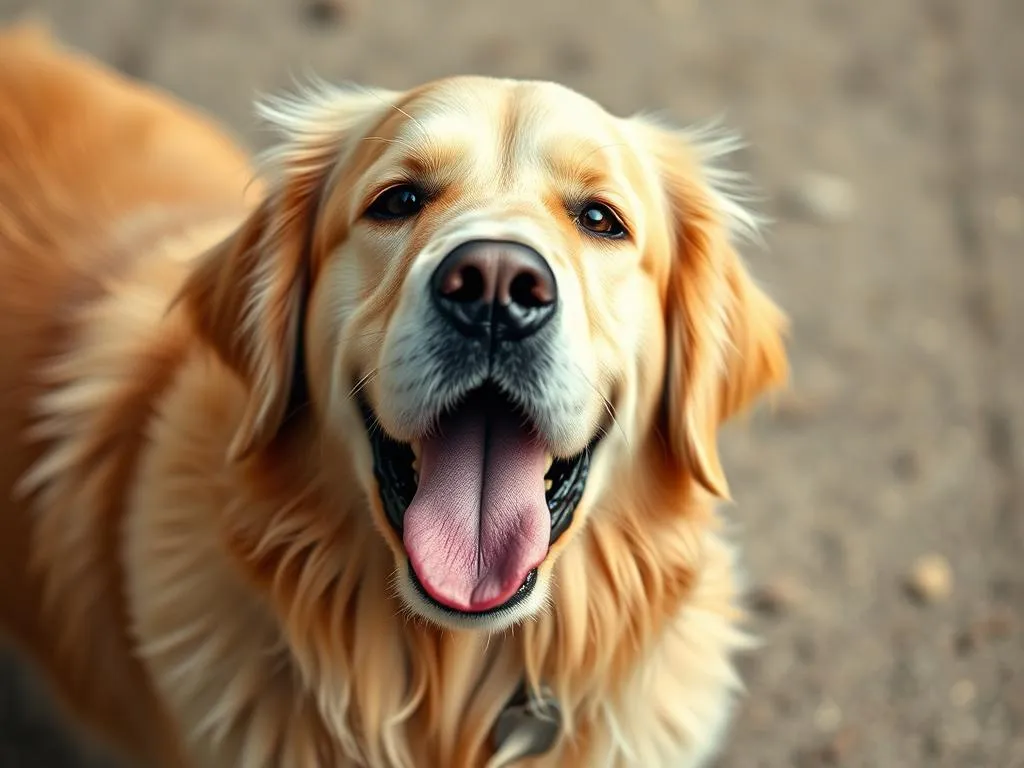
Introduction
Panting is a natural behavior exhibited by dogs, serving various purposes from regulating body temperature to expressing emotional states. Golden Retrievers, known for their friendly disposition and high energy levels, often pant more than other breeds. Understanding why Golden Retrievers pant so much is essential for any dog owner, as excessive panting can be an indicator of underlying health issues. This article delves into the reasons behind panting in Golden Retrievers, providing insights into their health care.
Understanding Panting in Dogs
What is Panting?
Panting is a rapid, shallow breathing pattern that dogs use primarily to cool down. Unlike humans, dogs do not sweat to regulate their body temperature. Instead, they rely on panting to release heat from their bodies. When a dog pants, they inhale and exhale quickly through their mouths, allowing moisture on their tongues and in their lungs to evaporate, thus cooling them down.
Normal vs. Abnormal Panting
Not all panting is created equal. Normal panting occurs after physical exertion, during hot weather, or when a dog is excited. Some characteristics of normal panting include:
- Moderate pace and rhythm
- Occurs during or after exercise
- Stops once the dog cools down or calms down
Abnormal panting, on the other hand, can be a sign of distress or health issues. Signs that indicate panting may be abnormal include:
- Excessive panting unrelated to activity
- Accompanied by other symptoms like lethargy, coughing, or loss of appetite
- Persistent panting that doesn’t subside with rest or cooling off
Reasons Why Golden Retrievers Pant
Environmental Factors
Golden Retrievers are particularly sensitive to temperature and humidity. Ideal conditions for them range from 60°F to 75°F (15°C to 24°C). In hotter conditions, they may pant excessively as a way to cool down.
- Temperature and humidity effects: High temperatures and humidity can lead to overheating, causing dogs to pant more heavily.
- Exercise and activity levels: Golden Retrievers are energetic dogs that require regular exercise. After vigorous activities, they may pant as a natural response to exertion and heat.
Emotional Responses
Anxiety and fear-induced panting is common in Golden Retrievers, especially during thunderstorms, fireworks, or when they are left alone. This type of panting can be accompanied by other signs of distress, such as pacing or whining.
- Excitement and stress-related panting can also occur when they are anticipating something fun, like going for a walk. Understanding their emotional state can help owners determine if the panting is normal or a cause for concern.
Health-Related Causes
Several health issues can lead to excessive panting in Golden Retrievers. Some common medical conditions include:
- Respiratory diseases: Conditions such as kennel cough or pneumonia can make breathing difficult, leading to increased panting.
- Heart conditions: Issues like congestive heart failure can cause panting as the heart struggles to pump blood efficiently.
- Pain and discomfort: Conditions like arthritis or injuries may also lead to panting, as dogs express their discomfort.
Age-Related Factors
As Golden Retrievers age, their bodies undergo various changes that can affect their breathing patterns. Older dogs may pant more frequently due to:
- How age impacts panting frequency and intensity: Senior Golden Retrievers may have decreased lung capacity or other health issues that lead to increased panting.
- Specific concerns for senior Golden Retrievers: Conditions such as obesity, arthritis, or heart disease become more prevalent in older dogs, necessitating closer monitoring.
Assessing Your Golden Retriever’s Panting
Observational Techniques
Monitoring your Golden Retriever’s panting behavior is crucial for understanding their health. Here are some techniques to assess their panting:
- Frequency and duration: Keep track of how often they pant and for how long. Excessive or prolonged panting may require veterinary attention.
- Context: Note the circumstances under which they are panting—after exercise, during stress, or in warmer temperatures.
When to Seek Veterinary Help
While occasional panting is normal, certain symptoms warrant immediate veterinary attention. Seek help if you notice:
- Symptoms that warrant immediate attention: Difficulty breathing, coughing, lethargy, or a sudden change in behavior.
- Importance of regular veterinary check-ups: Routine visits can help catch underlying health issues early, ensuring the well-being of your Golden Retriever.
Managing Excessive Panting
At-Home Strategies
Creating a comfortable environment can help reduce excessive panting. Here are a few strategies:
- Creating a comfortable environment: Ensure your dog has access to cool, shaded areas, especially during hot weather.
- Techniques to reduce anxiety and stress: Use calming aids such as anxiety wraps, pheromone diffusers, or soothing music to help keep your dog relaxed.
Professional Interventions
If panting persists despite at-home efforts, it’s important to consult a veterinarian. They can:
- Role of veterinarians in diagnosing underlying issues: A thorough examination and diagnostic tests may be necessary to identify health problems.
- Possible treatments and therapies for excessive panting: Depending on the diagnosis, treatments may include medication, behavior modification techniques, or lifestyle changes.
Preventive Health Care for Golden Retrievers
Regular Vet Visits
Routine veterinary visits are essential for maintaining your Golden Retriever’s health. These check-ups allow for early detection of potential health issues.
- Importance of routine health checks: Regular assessments can help ensure your dog remains healthy and happy.
- Vaccinations and preventive care: Keeping vaccinations up to date helps protect against common illnesses that could lead to panting.
Diet and Nutrition
Proper nutrition plays a vital role in your dog’s overall health, impacting their energy levels and well-being.
- Nutritional needs specific to Golden Retrievers: A balanced diet rich in proteins, fats, and carbohydrates is essential for maintaining their energy levels.
- Impact of diet on overall health and panting: Poor nutrition can lead to obesity, which may exacerbate panting due to strain on the heart and lungs.
Exercise and Socialization
Regular exercise and social interaction are crucial for keeping your Golden Retriever physically and mentally stimulated.
- Appropriate exercise routines for Golden Retrievers: Aim for at least one hour of exercise daily, which can include walks, fetch, or swimming.
- Importance of socialization in reducing anxiety-related panting: Well-socialized dogs are typically less anxious, reducing the likelihood of stress-induced panting.
Conclusion
In conclusion, understanding why Golden Retrievers pant so much is essential for any responsible pet owner. By recognizing normal versus abnormal panting, monitoring their behavior, and taking preventive health measures, you can ensure your Golden Retriever remains healthy and happy. Keeping an eye on their panting patterns and overall well-being will contribute significantly to their quality of life, allowing you to enjoy many joyful moments together in the years to come.









